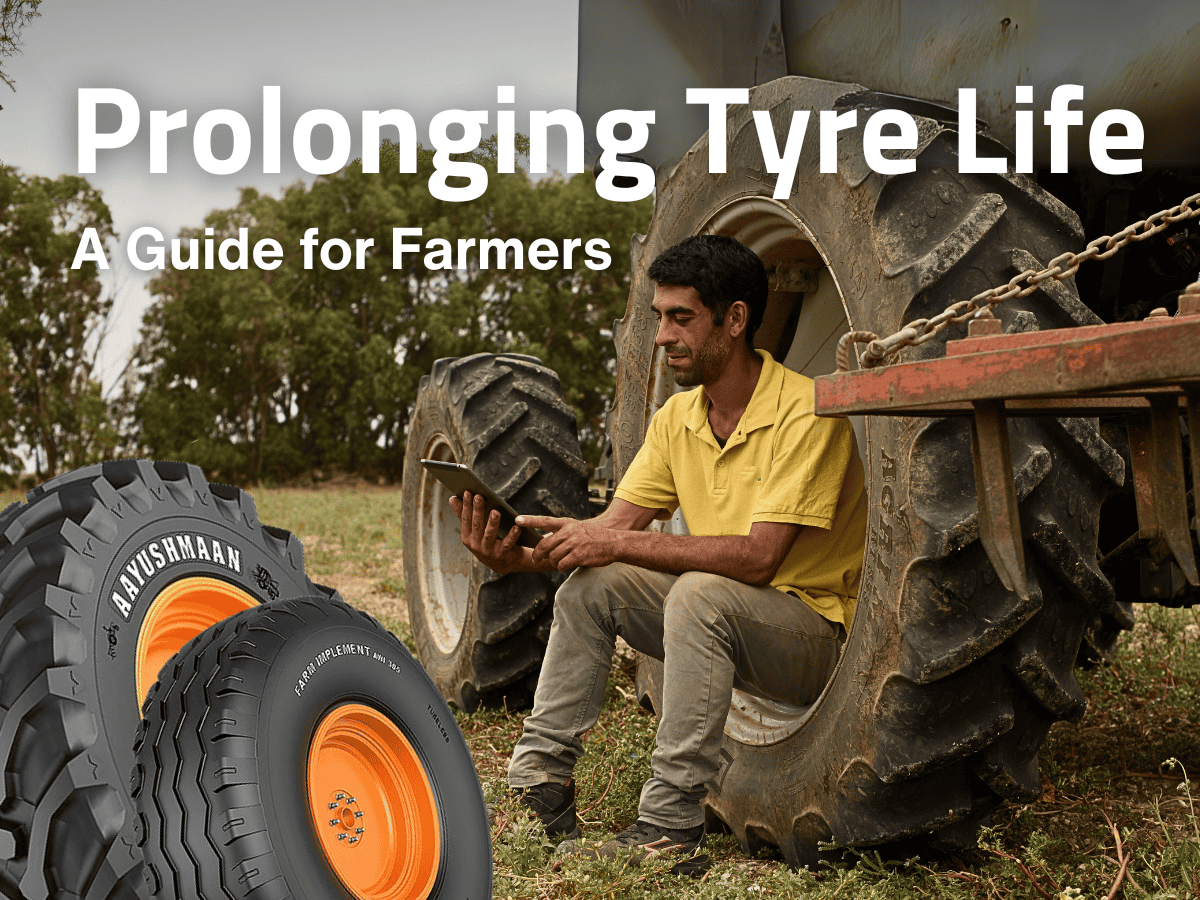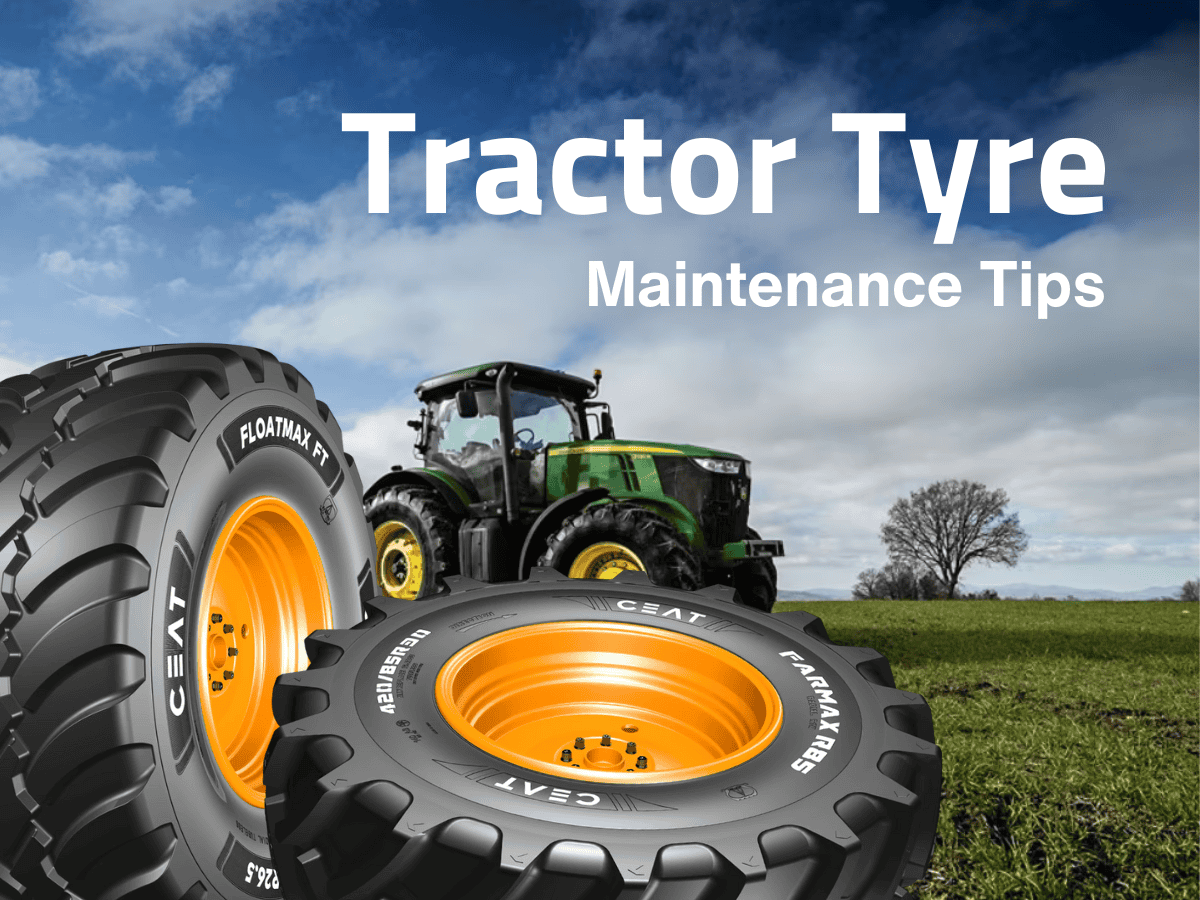ceat-speciality:blogs-tags/all,ceat-speciality:blogs-tags/tyre-care
The Importance Of Correct Tractor Tyre Pressures
Fri, 24 Dec 2021 | PRODUCTS
No matter which tractor tyres you choose for sale on the market, they cannot efficiently, effectively and safely transfer a machine’s power to the ground unless it contains the correct amount of air for which it is designed. When you are seeking tractor tyres for sale, searching ‘tractor tyres near me’ in an internet search or scanning down a tractor tyres price list, the tractor tyres you finally select should be supplied with recommendations for the correct pressures that they should be installed with and maintained at.
But there are multiple factors that may mean that a tractor’s tyres may not be inflated to the right pressures. Regular checking is essential, even during the busiest of periods, to ensure tractor tyres are not losing air. At the same time, it’s also vital to ensure that the gauge you are testing pressures with is accurate. It can be easy to underinflate a tractor tyre if in a hurry, while it may also become underinflated if, for example, a slow puncture develops. And on the other hand, it is essential not to overinflate a tyre, either accidentally or purposely. Remember these points when seeking tractor tyres for sale, searching ‘tractor tyres near me’ in an internet search or scanning down a tractor tyres price list.
But what makes each of these two issues so critical? Let’s deal first with underinflated tractor tyres. When tractor tyres have insufficient air inside them, several things will – or will potentially – occur. Firstly, there is the likelihood of the bead failing to seat properly, which can mean the tyre slipping on the rim and potentially coming off it. That can have very serious consequences, whether in the field on low-speed work oron the road at much higher speeds. The best-case scenario is a damaged tyre carcase, while at worst, it could lead to an on-highway accident.
With a damaged carcase, much will depend on when it is detected. It is possible that, if only underinflated by a relatively small amount, significant damage may take time to become noticeable – but it will happen. In the meantime, likely problems include excessive tyre wear, particularly as the shoulders of the tractor tyre will be bearing more of the tractor’s weight and tractive load than the centre. The tractor tyre will potentially slip on the wheel rim when it comes under significant tractive load and torque. A tubeless tractor tyre can lead to rapid deflation and the tractor tyre potentially coming off the rim. This situation can also occur on the road at higher speeds, particularly when making significant steering movements, potentially affecting the vehicle operator and other road users. Look for advice on these issues when seeking tractor tyres for sale, searching ‘tractor tyres near me’ in an internet search or scanning down a tractor tyres price list.
The issue of overinflation is just as critical. The first potential danger, of course, is that the tractor tyre may again potentially become unseated from the wheel rim. In this case, the issue is particularly during inflation, with a severe risk of explosion and injury or death. An explosion is even more likely to occur if, during work, the tractor tyre has incurred damage such as cuts to the sidewalls and inter-tread areas. Weak areas such as bulges and cracks in the sidewalls of the tractor tyres can be exacerbated by over-inflation and make an overinflated tyre more susceptible to potential explosion. Bulges are likely to have arisen from sharp stones penetrating the sidewalls, while cracks tend to be age-related. In either circumstance, the replacement of the tractor tyre is essential. When you seek tractor tyres for sale, search ‘tractor tyres near me’ in an internet search or scan down a tractor tyres price list, advice on these issues should be available from manufacturer and supplier.
Overinflation also causes more load to be borne by the centre of the tractor tyre tread. This causes uneven wear and reduces the tyre footprint, thereby reducing ground contact and grip and reducing the load-bearing area of the tractor tyre, causing greater soil compaction. On the road, reduced contact area means more tractor tyre wear in the centre of the tread, and less control under acceleration, braking and steering.
To ensure the best performance and absolute safety, check your tractor’s tyre pressures as often as possible, and ensure you never over or under-inflate. Next time you seek tractor tyres for sale, or search ‘tractor tyres near me’ in an internet search or scan down a tractor tyres price list, remember these points when managing your tractor tyres once fitted.




























































































































